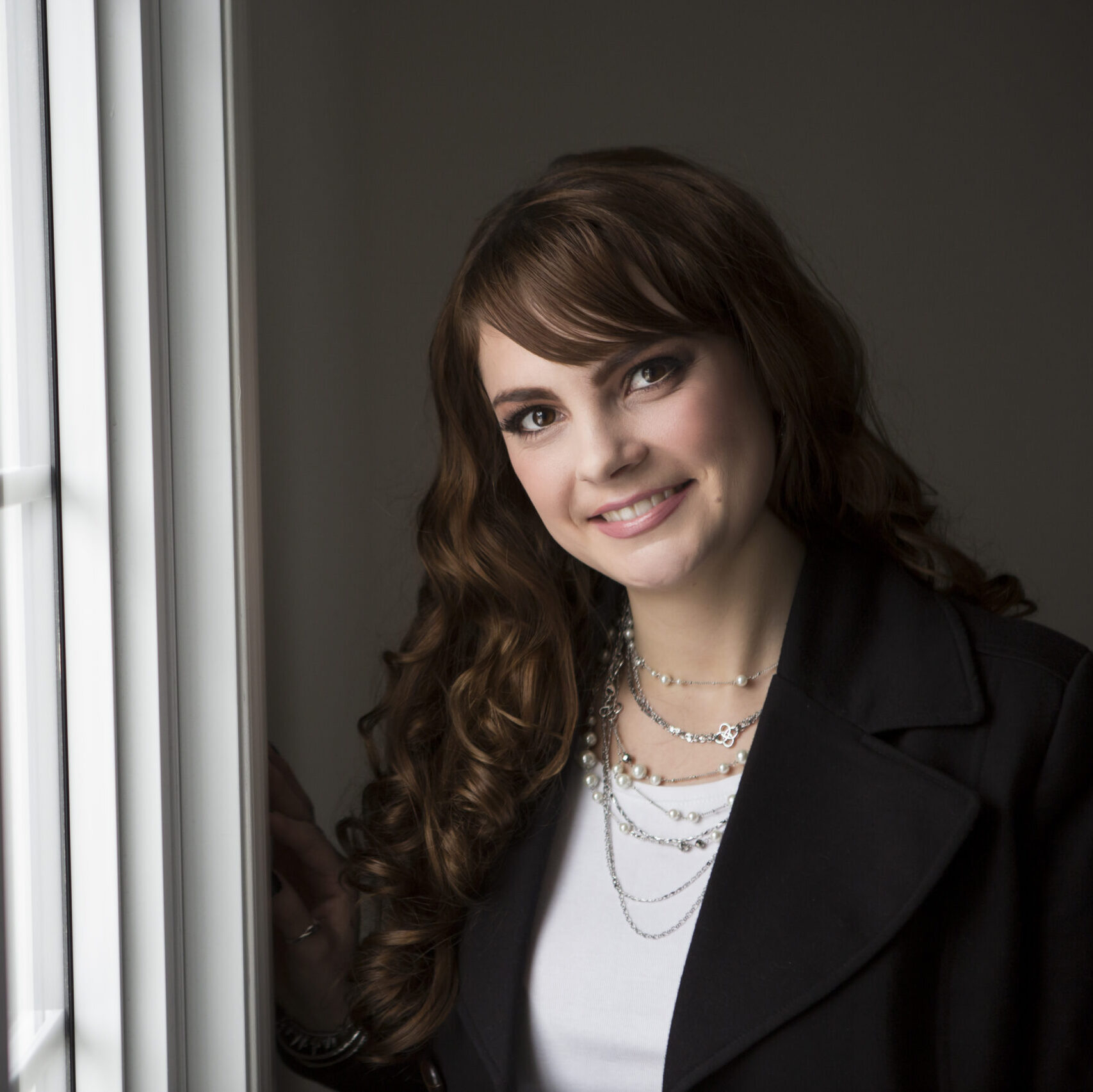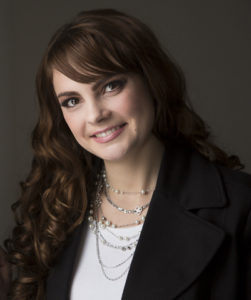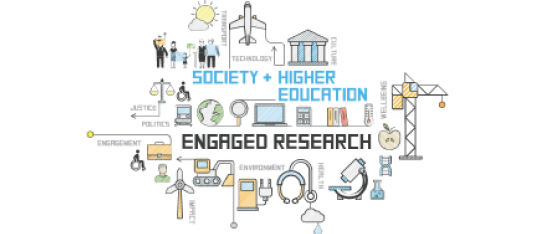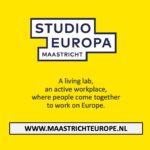What is Community-Engaged Research in Higher Education?
My Research Approach – Engaging Communities
Earlier this week I had some virtual meetings with some new colleagues in Maastricht and a theme that arose was our shared value and approach of “community-engaged research.”
I realised how stimulating it is to speak with others who are using this approach, but that the concept of community-engaged research is less well known across other disciplines.
I call community-engaged research an “approach” rather than a “methodology” because it is applied by different disciplines in different ways, and it each use case or case study (i.e., community or communities) it focuses on will have different needs so no ‘one-solution-fits-all’ method can be applied.
While searching the internet for some introductory resources explaining community engaged research, I came across a video from Western University (Ontario, Canada) that describes the approach in a simple and relatively non-discipline specific way.
Following on from this introduction (by Lisa Boyko) in the video above, community-engaged research does not always need to have an end goal of civic action (e.g., as commonly seen in social science projects), but the approach has also been applied in health sciences research and in heritage studies, cultural studies, and public history.
My First Experience with Community-Engaged Research
My introduction to community-based learning started at my alma mater at the University of Alberta (Canada), which offers what is called “Community-Service Learning” (CSL) courses. While I didn’t register for a specific course in CSL, this method was well known to professors in the social sciences at the university and I remember that one of my papers for a course I took called “Organisational Communications” during my Master of Arts in Communications and Technology involved selecting, visiting and interviewing members of an organisation in Alberta. This allowed me to apply the communication theory I learned in the course to an existing organisation and determine where the theory could help improve their communication structure. Not only did I put theory into practice in a paper for my course, but I also provided a copy of the paper to the participating organisation who could in turn potentially benefit from my analysis and recommendations if they chose to implement my suggestions.
Since then, I see now that the University of Alberta offers both a Certificate Program in Community-Based Research and Evaluation and a Master of Arts in Community Engagement in Public Health.
Continuing with Science Foundation Ireland’s Education and Public Engagement Programme
My PhD at Trinity College Dublin (Ireland) was funded by a Science Foundation Ireland (SFI) institution called the ADAPT Centre for Digital Content Technologies. As part of my PhD, I had annual targets for what was called the “Education and Public Engagement Programme” (EPE) portion of my scholarship. The EPE involved communicating and engaging with the public about research happening at the ADAPT Centre. My EPE outreach activities included:
- attending industry showcase events where research talks and posters were presented at Croke Park;
- writing social media posts about my current research;
- participating in SFI provided “Campus Engage Research” training courses designed for academics; and
- assisting annually with the All Ireland Linguistics Olympiad (AILO) event where school-aged children participated in exam-like settings to solve challenging puzzles in languages from around the world (e.g., Egyptian hieroglyphics, numerical spy codes, and ancient Mayan poetry).
The AILO event was inspiring and the puzzles even appeared in a table quiz fundraising event I attended and I got to solve them myself. It was a full-circle experience when I saw multiple secondary school students solve the puzzles and then tenured professors couldn’t figure out the patterns! There really is something to be said for stepping outside the actual brick walls that surround Trinity College.
Engaged PhD Research Using Big Data (User-Generated Content) and Fieldwork in Australia
In addition to participating in public outreach activities, I also conducted community-engaged research in some capacity for my PhD case study on the 11 UNESCO World Heritage Australian Convict Sites. My research involved:
- Gathering, cleaning, and analysing several types of user-generated content (e.g., Instagram, blogs, TripAdvisor reviews);
- informally interviewing local Australians about their perception and knowledge of Australia’s convict history;
- visiting 8 of the 11 UNESCO WHS to hear the histories first-hand from local guides and observing how the on-site experiences differed and added new insights into the digital data I had analysed while back at my desk in Dublin, Ireland.
Without having completed this fieldwork (which coincided with Queensland University of Technology’s annual Digital Media Research Centre‘s PhD Summer School), the resulting interactive web documentary (iDoc) about the UNESCO sites would have been missing several key pieces from both a creative arts and cultural perspective. Notably, the gravity of the dark history, the remoteness of some of the World Heritage Sites, and the massive impact on Indigenous populations would not have gained as much attention as I paid tribute to in the resulting iDoc. The overarching theme of the convict past on current Australian identity also emerged as a result of my fieldwork and it would have been missing had I not gone and engaged directly with the communities and staff at the UNESCO sites.
The Community-Engaged Approach for My Postdoc at Studio Europa, Maastricht University
Building on my previous experience, my postdoctoral research takes a community-engaged approach as well. My approach is transdisciplinary, rather than interdisciplinary or multidisciplinary, because it is characterised by a focus on real-world challenges with a goal of creating change and providing practical outcomes applicable to a social context (Wickson, Carew, & Russell, 2006).
In considering the public’s role in creative digital placemaking, there are three possible methods of project development namely: (1) “organic” which is bottom-up and led by individuals or communities; (2) “planned” which is top-down and led by professionals and stakeholders (e.g., governments) often for economic prosperity; and (3) “collaborative” which sits between the two (Lew, 2017).
The community-focused collaborative approach in my postdoctoral research will:
- involve the analysis of public opinion and commentary of topics of heritage and culture as examined through social media content;
- examine the methods (e.g., crowdsourcing) used by heritage and other organisations to engage the public;
- find/develop ways for gaining citizen participation in understanding and contributing the idea of shared heritage in the Meuse-Rhine Euroregion; and
- it will promote societal change towards the concept of virtual tourism (e.g., educational narratives).
This week I was very happy to meet with the likeminded individuals who established Maastricht University’s Platform for Community-Engaged Research and I hope to continue meeting and exchanging ideas with other scholars working with these types approaches.
Methods for community participation in public history projects will also be one of the topics of discussion the upcoming
Virtual Panel Event
“European Heritage & Identity: Stories from Border Regions”
15 April 2021
2:00 pm
You can still register for the event here!
Community Engagement in Higher Education is a Re-Emerging Priority at the EU level
Not only is community-engaged research important and happening with individual researchers, university groups, and cross-institution research labs, but it is also re-emerging as a priority at the EU level.
Find more details about community engagement in higher education at the EU-level in the recently published (one hour long) YouTube NESET Webinar here.
Do you used community-engaged research approaches?
What techniques have you found to be most beneficial?
Do you have any published work/links you’d like to share, please do so in the comment section below!




